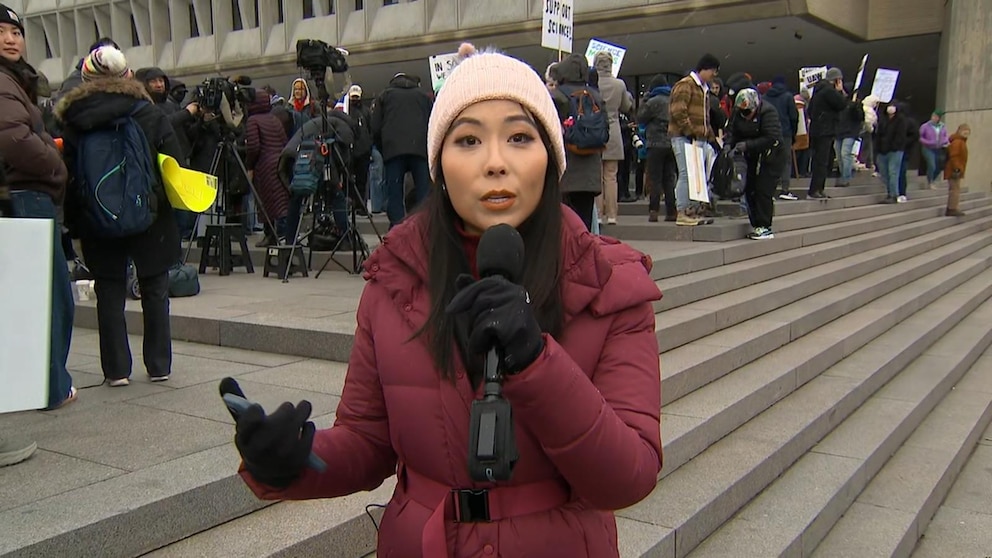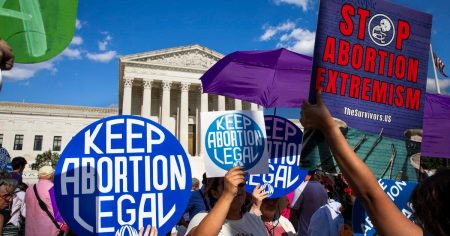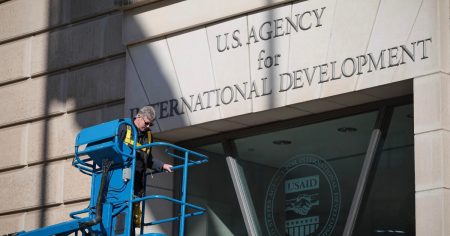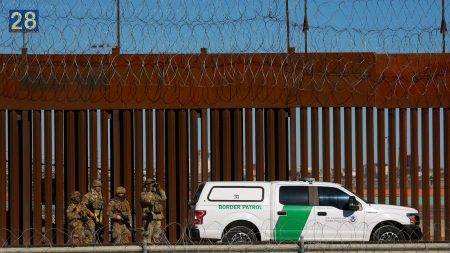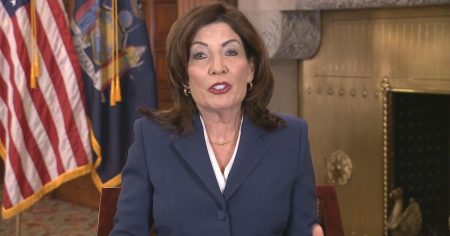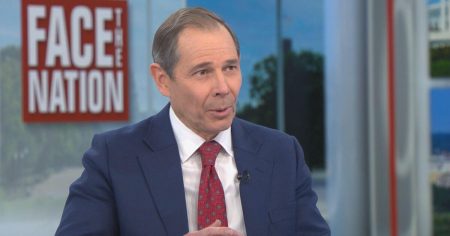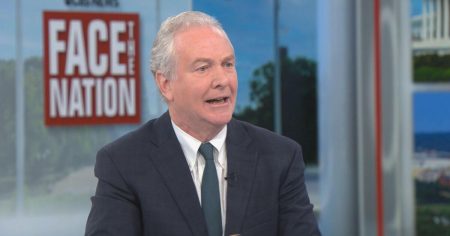The Protest at HHS Headquarters: A Stand Against Agency Cuts
On a crisp morning in late October, hundreds of federal workers gathered outside the Department of Health and Human Services (HHS) headquarters in Washington, D.C., to protest against the recent wave of agency cuts. The protesters, many of whom had been terminated or furloughed due to budget reductions, held signs that read, "Save Our Jobs," "Fund HHS," and "People Over Politics." The demonstration was organized by a coalition of federal employee unions and advocacy groups, who argue that the cuts are not only devastating to workers but also harmful to the critical programs and services that HHS provides to millions of Americans.
The protesters were joined by lawmakers, union leaders, and community advocates, who delivered impassioned speeches about the importance of preserving federal jobs and the essential role of HHS in safeguarding public health and social services. "These cuts are not just numbers on a spreadsheet," said one union representative. "They represent real people, real families, and real communities that will suffer if we don’t act now." The atmosphere was tense but determined, with many protesters sharing their personal stories of hardship and resilience.
The Impact of Agency Cuts: A Blow to Public Health and Social Services
The HHS cuts are part of a broader effort by the federal government to reduce spending, but critics argue that the reductions are being made at the expense of vital programs that benefit vulnerable populations. HHS oversees a wide range of critical services, including Medicaid, the Children’s Health Insurance Program (CHIP), and initiatives to combat the opioid crisis and improve mental health care. Workers at the protest pointed out that the cuts will not only lead to job losses but also weaken the agency’s ability to deliver these essential services.
One protestor, a single mother who worked as a program analyst at HHS for over a decade, tearfully shared her story. "I’ve dedicated my career to helping others," she said. "Now, because of these cuts, I’m facing the very real possibility of losing my job and not being able to provide for my children. It’s heartbreaking to think about the impact this will have on my family and on the people we serve." Her story resonated with many in the crowd, as similar fears and uncertainties were etched on the faces of her fellow protesters.
Workers’ Stories: The Human Cost of Budget Cuts
The personal stories of the federal workers at the protest underscored the human cost of the agency cuts. Many of those in attendance had spent years working tirelessly in public service, driven by a commitment to making a difference in their communities. Now, they find themselves facing an uncertain future, as their jobs are being eliminated due to budget constraints.
One worker, a veteran of the agency who had spent 20 years working on programs to support low-income families, expressed his frustration. "I’ve seen a lot of changes over the years, but nothing like this," he said. "These cuts aren’t just about numbers; they’re about people’s lives. The programs we administer are lifelines for millions of Americans. If we’re not here to manage and implement them, who will?" His concerns were echoed by others, who emphasized the critical role that HHS plays in ensuring access to health care, food assistance, and other social safety net programs.
Reactions from Unions and Advocates: A Call to Action
The protest was not just a moment of expression but also a call to action. Union leaders and advocates urged lawmakers to reconsider the budget cuts and to prioritize the needs of federal workers and the communities they serve. "This is not just about saving jobs," said one union official. "It’s about ensuring that our government can continue to fulfill its most basic responsibilities to the American people."
The demonstrators also called on the public to raise their voices and demand that elected officials take action to address the funding shortfall. "We need everyone’s support," said another protester. "Whether you’re a federal worker or just someone who cares about the services we provide, we need you to stand with us and fight for what’s right." The protest served as a powerful reminder of the importance of advocacy and collective action in the face of adversity.
The Broader Context: The Challenges Facing Federal Workers
The protest at HHS headquarters is part of a larger struggle faced by federal workers across the country. In recent years, federal employees have seen their jobs threatened by budget cuts, outsourcing, and other cost-saving measures. These challenges have been compounded by the growing politicization of public service, with some lawmakers targeting federal agencies as part of broader ideological battles.
For many federal workers, the current climate has created an environment of uncertainty and fear. "It’s hard to plan for the future when you don’t know if you’ll have a job next month," said one protester. "But despite all of this, we remain committed to our work and to the people we serve. We just need our elected officials to show the same commitment." The protest at HHS served as a testament to the resilience and dedication of federal workers, even in the face of significant challenges.
The Road Ahead: Fighting for a Better Future
As the protest at HHS headquarters came to a close, the demonstrators left with a renewed sense of purpose. While the road ahead is uncertain, they are determined to continue fighting for their jobs, their agency, and the critical services they provide.
The protest also served as a reminder of the importance of solidarity and collective action. By coming together and sharing their stories, the federal workers at HHS sent a clear message to lawmakers and the public: the cuts to HHS are not just numbers on a budget sheet, but real lives that will be impacted. As one protester put it, "We’re not just fighting for our jobs; we’re fighting for the future of our communities. And we won’t give up."
In the days and weeks ahead, the federal workers at HHS and their supporters will continue to advocate for a solution that prioritizes people over politics. Their fight is not just about saving jobs; it’s about ensuring that the government can continue to serve the American people with the care, compassion, and commitment that they deserve.





